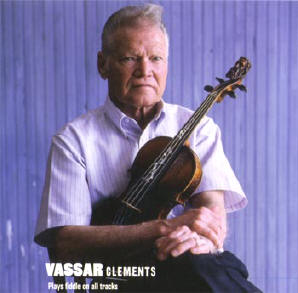Here's a reprint of something I wrote three years ago that I thought was worth keeping around. I don't know how much longer it will be available at the not-very-healthy-looking
Falcon Web site (the campus newspaper at
SPU, my alma mater), where it was originally published. So I'm dusting it off and giving it a new home.
This essay was a response to a piece by one of the
Falcon's staff writers. I worry about SPU when I read the
Falcon. The school's motto is "Engaging the culture, changing the world," and I'm on board with that. But, of course, in order to change the world one must engage the culture in the Areopagite sense, if not the Jean-Luc Picard sense, of the word
engage. Students who write opinion pieces for the
Falcon are willing to engage the culture. I'll give them that. But they seem too often inclined to engage it in the "under every green tree" sense, as the prophet
Jeremiah put it—in other words, letting the culture have its way with them. And that isn't going to change the world.
Here in its entirety is a
Falcon piece that really fried my grits. My response, which the
Falcon was kind enough to publish a couple of weeks later, is below.
Christian faith may bias instruction of theology
Diverse professors would promote objectivity
By Andrew Steiner, Staff Writer
Published: 4-3-2002
The goal of a theology class is to teach its students about a faith. It is not about trying to convert its students to that faith. Would a theology class reach this goal better by having a Christian or a non-Christian teach the class?
The theology classes here at SPU are taught by Christian professors. If it were not required that all the teachers here be Christians, would it still be required that the theology teachers be so? Some might say that not requiring these professors to be Christians would make the classes less biased and more objective. Though a theology teacher who is a Christian may attempt to be objective and unbiased, this individual may still have the desire that students be converted to the Christian faith. Of course, nothing is wrong with this desire; one should want others to convert to one’s own faith. Such a desire, though, is a factor in making the teacher somewhat biased and subjective.
On the other hand, there is no guarantee that a theology professor who is not a Christian might be any less biased than a professor who is a Christian. Non-Christian instructors of theology have some interest in the faith since they are teaching about it. They also have some reason for not being a Christian. This reason might be enough to make them just as biased as a professor who is a Christian. One who is a Christian is experiencing that faith much more than one who is not. But does this guarantee that he or she will know more about it than those who are not?
It is a safe assumption to say that any theology professor who is a Christian is passionate about the faith. No matter what a professor’s teaching ability is, a sense of passion will undoubtedly make for a better teacher. In my experience, the teachers I have had who were passionate about what they were teaching were obviously into their subject more than those who were not. I usually learned far more from the teachers who had this passion.
Just as a Christian may have this passion about teaching on their faith, a non-Christian may be just as passionate. One reason that non-Christians may be theology professors is that they are genuinely interested in Christianity. They may be on a search themselves to find reasons to become a Christian. Though they have gone to seminary and taken the same classes that other Christian theology professors have taken, they could still be considered a yearning student of Christianity.
Yet another possibility is that there may be a theology professor who not only teaches classes on Christianity, but also teaches classes on other religions. He or she may teach a class on Judaism, Buddhism, Islam or Hinduism. This instructor’s reasons for teaching these classes would not be because of a passion about any single religion, but because of the enjoyment gained in learning and teaching on several of the main religions of the world.
This teacher’s fascination and curiosity would bring enough passion into the classes. Especially if this teacher does not have a favorite religion to teach on, he or she would be the least biased theology teacher. Such teachers are able to treat religions strictly as subjects, rather than faiths they believe to be true. This type of theology teacher would be the ideal one to have for a class.
OK, so much for
that. Here's my reply:
Instructors must practice faithBy Martin Stillion, Guest Writer
Published: 4-17-2002
I’d like to respond at length to Andrew Steiner’s April 3 editorial "Christian faith may bias instruction of theology." In it, he suggests that the ideal theology professor would be "a non-Christian" who "not only teaches classes on Christianity, but also teaches classes on other religions," and "does not have a favorite religion to teach on." He claims that such professors are unbiased, because they can "treat religions strictly as subjects, rather than faiths they believe to be true."
I am reminded here of George Bernard Shaw’s famous quip, "Those who can, do. Those who can’t, teach." But Shaw’s remark was meant to be ironic, not normative. The idea that those who don’t practice a religion are somehow best equipped to teach about it strikes me as not only counterintuitive but extremely dangerous.
I doubt very much whether it is possible for a person to take a neutral or unbiased stance toward Christianity. Ultimately, you either embrace Christ or you reject him. I don’t see any neutral ground. It is, of course, possible to reject Christianity out of ignorance or misinformation, but Mr. Steiner doesn’t want an ignorant or misinformed person. He wants someone who has studied Christianity on its own terms and chosen not to accept it. That is neither a neutral nor an objective stance. Yet Mr. Steiner’s "ideal" professor has taken this stance not only toward Christianity, but toward several other religions. Having studied them all and rejected all their claims to truth, the professor will offer nothing in place of those claims.
This professor, if not very introspective, may profess to be unbiased toward religion. But the greater likelihood is that the professor is equally biased against all religions. And this bias, because both student and professor are unaware of it, is far more insidious than any overt bias ever could be. If the professor claimed to be a Free Methodist, a Catholic, a Muslim or even an atheist, then Mr. Steiner could say to himself, "I must keep in mind where this individual is coming from." On the other hand, if Mr. Steiner thinks of the professor as someone whose hobby is religion but who doesn’t have a favorite, then he is likely to come away from the class with the impression that religions are like rare glass sculptures: interesting to look at, but impractical to carry around with you. Mr. Steiner doesn’t want to learn about religion; he wants to be inoculated against it.
There is a good deal of this inoculation going on in "comparative religion" courses at institutions of higher learning all across the country, and it is being performed by men and women who may resemble Mr. Steiner’s ideal professor in some aspects. But Mr. Steiner is not at one of those institutions; he is at SPU, which declares its Christian bias openly and often. Instead of relying on his own wits to detect this bias wherever he might encounter it, Mr. Steiner seems to be asking that the school scuttle its mission in order to minimize the risk of accidentally tainting him with some vestigial affection for Christianity.
A professor of comparative religion may be a syncretist—one who affirms the validity of the moral principles that most religions have in common. But a syncretist is not what Mr. Steiner is after. In his own words, ideal professors teach "religions strictly as subjects, rather than faiths they believe to be true." He does not want faith of any kind to enter the picture. Perish the thought that any religion should be found to contain truth. He clearly prefers the unavowed bias against all religions to the explicit one in favor of a given religion.
I wonder whether Mr. Steiner took the time to read C. S. Lewis’ The Abolition of Man when it was offered as part of the Common Curriculum last year. In that book, Lewis takes the syncretist’s approach, showing that all great religions and civilizations have held more or less the same moral principles. These he collectively calls "the Tao." Lewis goes on to predict that modern education’s systematic disregard for the Tao will soon produce a generation of "men without chests"—human beings with no connection between the soul and the intellect, who are both incapable of moral reasoning on their own and suspicious of it in others. I contend that the type of religious instruction Mr. Steiner proposes will accomplish much the same thing.
 Sitting at night under romantic lights in a gazebo and serenading my wife and son—that's my idea of a good time.
Sitting at night under romantic lights in a gazebo and serenading my wife and son—that's my idea of a good time.

